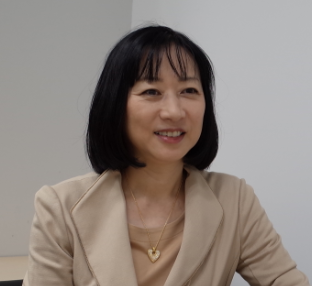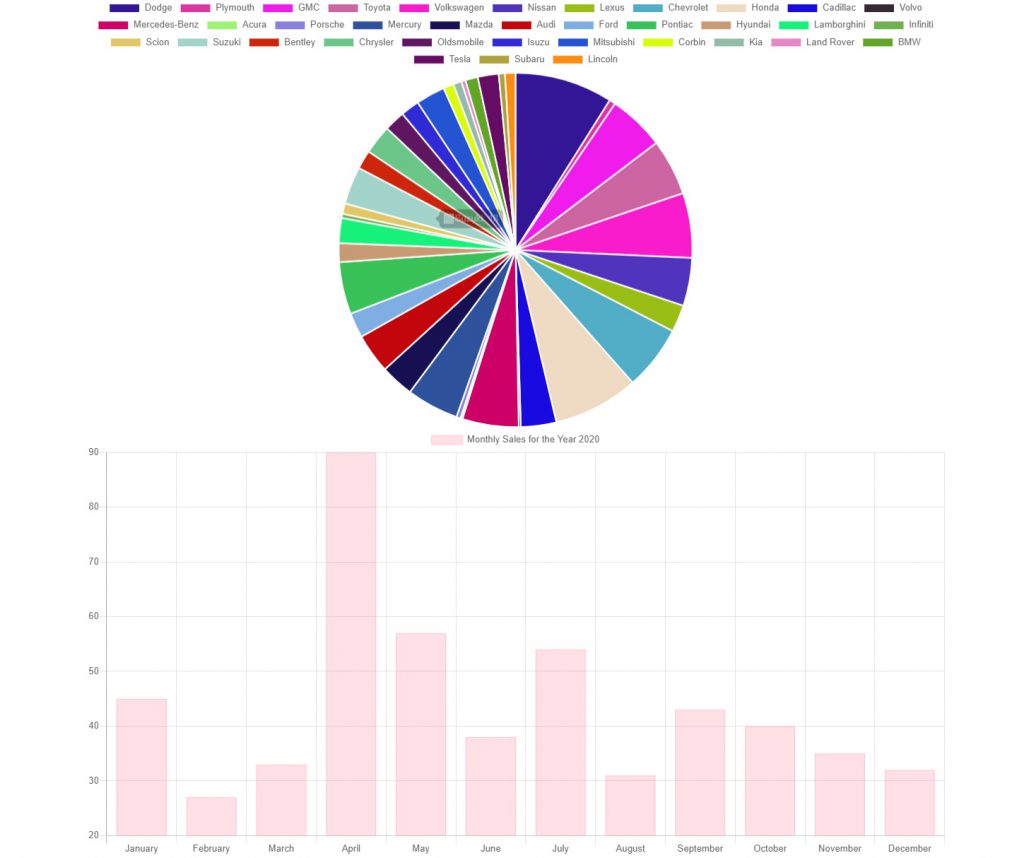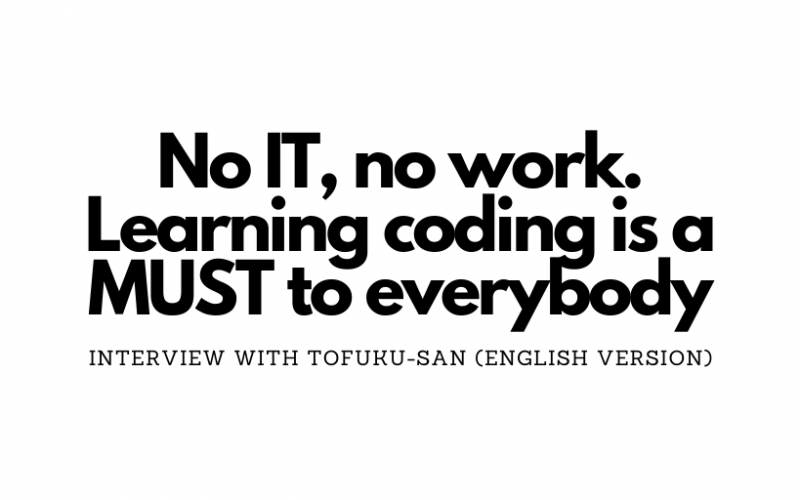(Japanese version is available.)
Mariko Tofuku just completed the main course of the Developer Career Program, a coding bootcamp (to learn programming) offered by Zuitt. What made her decide to learn coding for hundreds of hours? What did she like and what did she dislike about the course?
Ms. Tofuku assures learning coding is a MUST not only to engineers but also to people with any type of career.
(Interview by Hiroyuki Ohashi)

As a career counselor, she provides career advice to corporate employees.
She has worked for more than 10 years as a controller (financial statement analysis and project calculation) and accountant at a German company. She has a one-year experience of working in Germany.
She also worked with more than a dozen Filipino colleagues at the headquarter and the subsidiary when she was an employee. She also studied English with Filipino tutors at RareJob English for 7 years. One of her best friends is Filipino.
The younger, the more opportunities to change life.
──Mr. Tofuku is active as a career change counselor.
I give a variety of advice to those who request career counseling.
Some are thinking of changing jobs, some don’t like the company, some are worried about the future, and others have various other concerns.
I tell them, “Please write your resume and CV, no matter how simple they would be. In short, I ask them to review their career. Even if you are not thinking about changing jobs right now, having a CV will be useful when the time comes.
Our clients come from all walks of life, including sales, marketing, planning and creative professionals. They are all very serious about their careers.
However, such serious people only look at their weak points and don’t notice their good points. As I ask them questions, I give them advice on how to write their resume, saying, “This and that would also be appealing.”
──Japanese people are humble, aren’t they?
That’s right. Things usual to the people I talk to are not necessarily usual but amazing, especially after successfully hearing more concrete achievements and numbers.
──What kind of people do you see as your clients?
Most of them are in their late 30s to 50s. When I first started this job, I was expecting people in their early 30s. As a general rule, it becomes difficult to change careers after the age of 35. Your job options are narrower. So, if you want to make a big change in your life, it is best to be young.
Coding skill is a must. Wanted to know it first hand.
──You found out about Zuitt’s program through Twitter.
That’s a real coincidence. I was taking an online English tutorial lesson taught by Filipinos, and I tweeted about it. And the president of the online English school retweeted it before the former president, Mr. Kato liked it. As I went to his timeline, I found that he was now the president of a company called Zuitt, announcing that he was going to start classes globally.
I was interested in coding, so I said to myself, “This is a chance I’ll never get again. There was no reason not to sign up! So I decided to take the class.
──What did you think was good about it?
As it is said that the program has already been held more than 80 times, I thought “the content would be polished. I learn English from Filipinos, and I have Filipino friends. So I know that Filipinos are excellent and very kind. Therefore, I expected that the instruction would be of a high level.
I also trusted the fact that the president of Zuitt is Japanese, Mr. Kato, the former president of RareJob, where I studied English for a long time. I would have been worried about transferring money to a foreign company if I hadn’t known any.
Also, it is 100% live class, not a video recording. In my case, it would be impossible for me to study for four hours every day by myself. But I thought that if it was a live class, I would be pushed to finish it. I don’t know of any other programming school that offers all of its classes live.
──Did you have any other concerns?
All the instruction is in English, but I have been working in English for a long time, so I was not afraid of it.
But I don’t speak it like a native speaker. Even though I work in English, it doesn’t mean I also can interpret or translate. The only thing I understand English is my own specialization, accounting. I can handle emails and meetings, but I was worried about whether I could keep up with the coding instruction in English. Still, my desire to take the course prevailed.
──Why were you interested in coding?
For about 10 years now, people have been saying that what we need in the future is English and coding. In fact, since 2020, programming classes have been compulsory in elementary schools. What will happen then? I think the world will be a very different place in 10 years from now when the current elementary school students start to work.
English is not required for all the companies in Japan. But coding will become a must in any company.
──Do you think coding is becoming more common in the future?
That’s right. Not all the Japanese employees are required to speak English. But everybody has to use IT.
──Do you tell your clients this in your career counseling?
No matter how I wanted to tell them, it had been hard to do so as I didn’t know coding first hand. That’s one of the reasons why I decided to take this course.
──So that’s the reasons
English and coding will be much more important in the future. Not only I, but many have mentioned so.
There is no company without IT. Any department would start to manage their IT, instead of just leaving it to specialized departments.
Coding will lead to greater efficiency. Young people can’t escape from it.
Learning in English was easy with Zuitt.
──How was your experience with the course?
I love it as the program was step-by-step but not small steps. There was much to learn during each class.
Three instructors were in charge of my class. Everybody provided very high quality instruction. I could respect all of them.
Everybody would feel nervous in the beginning. But I was helped by the instructors a lot. If I didn’t understand something, the instructor would tell me specifically what I needed to know. When I was troubled with something that might be a little difficult, the instructor reassured me by saying, “Don’t worry, you’ll get it soon.”
While learning coding was more difficult than I had imagined, learning in English was easier than I had anticipated.
When I attended workshops held by Americans in the past, I figured that I needed to improve English skills further.
But the Filipino instructors’ English was different. The pronunciation is clear. The words and phrases are easier to understand. Native speakers cannot do this. I think the Filipinos can do it because they are bilingual. The instructors spoke perfect English. How they speak was also very easy to listen to. You don’t get tired even in long classes. That’d be because the instructors have been trained to speak English.
It’s definitely better than the ones in the US.
──Is there anything you would like to see improved?
It was hard to keep up with the classes. It would have been nice if there was a group on Facebook, for example, so that we could ask questions there.
I didn’t miss any classes, but once you miss a class, it could be very hard to catch up. On the other hand, there was also pressure not to miss any class. I could have a strong commitment through the course period.
──How was everything else?
There is one material that impressed me amazingly.
If you work in a company, you probably download CSV files and process them in Excel in your daily work.
It takes an hour or two to process the file, taking out commas and correcting misalignments so that the numbers fit correctly in the cells.
However, if you can code, the process can be completed in 5 seconds. This is what impressed me.
What would you do if you were a manager? If a person who can do a job in five seconds that used to take one or two hours joins the company, I would have to highly evaluate that person. That person may deserve 1.5 times better compensation than his or her colleagues.


Using coding skills, you can make huge differences. It amazed me.
There would be many people who process CSV files for hours. You can instantly transact it once you learn coding.
──So you were moved because it was related to the work you were doing.
Yes, it was. It might not have rung a bell without it.
I felt as if I were studying abroad.
──How was the price?
I was not worried about the contents and services as I had put my trust in them. However, I knew that I would have a problem keeping up with it.
Typical Japanese schools cost 300,000 to 400,000 yen. It would be painful to pay that much if I fall behind in the end. But Zuitt offered a very reasonable price. Even if I did fall behind, I thought I could accept it. I’m glad I could complete the course all the way through, though.
──How was the duration?
The period was four months. From my experience, four months is a good period to start from scratch and learn the basics. And it is a period where you can concentrate without getting bored. It was also four months that I studied bookkeeping to get my license. Four months would be a period where you can concentrate.
You probably won’t be able to last a year. You probably won’t be able to get much out of only a month.
In four months, even beginners can grow a lot.
──How was the live class?
Live classes must be a great advantage of Zuitt’s program. Few schools offer 100% live instruction. Most of them offer recorded ones. Although recorded ones would be economical to schools, I’d be too weak-willed to complete them, especially when I didn’t plan to shift my career to developers. Video was impossible for me.
Zuitt hired engineers as instructors, no matter how high the salary they had to pay. They focus on and invest in student learning experience. With such passion, I believed I could survive until the end.
──How was your online experience?
I stayed home to attend the instruction. You don’t have to go out. You also save time and energy.
Even when I suffered from a painful headache, I was able to attend because I was at home. Once you reach your limit, you can leave the class and go straight to bed.
I could manage it because the class was online. There are many advantages.
──How was everything else?
The class is four hours long, from 7:00 to 11:00 pm Japan time. There is a 30-minute break in the middle of the class, so it’s actually 3 hours and 30 minutes, but it’s pretty tough. It was Monday to Thursday. I could barely catch up by doing self study on Saturday and Sunday.
I was happy when I felt like I was studying abroad. I had never done it before.
The participants come from all over the world. There were four of us: a Senegalese, an American who was staying in Brazil, a Frenchman living in the Philippines, and myself. It is only online that people from different countries can take classes at the same time, isn’t it?
Night time In Japan, morning in Brazil. It was very refreshing to feel the cultural differences, such as eating breakfast while I was eating dinner.
Also, all the participants spoke in English, but there was one person whose accent made it difficult for me to understand. However, I think it was a good way to get used to it because in the future, in the age of globalization, we will not only be dealing with people who speak beautiful English.
However, it would be much greater if there were time for free talk. Except for the last capstone project, there was no relationship building among the students. Once class was over, everyone just disappeared. I miss the community of students like the Facebook group I mentioned earlier. It would have been nice to have a little more communication.
──Thank you very much for your comments not only today but also during the course. Zuitt has already started to implement the idea of the student small groups to encourage interaction among the students. They will also work on a Facebook group to encourage students to help each other by the end of the year.
I see. I think it will be easier to learn and more attractive.
Things will be easier once you get over the beginning part. Spread your wings to the world.
──Are there any situations where you can make use of your coding skills?
Like Harvard University’s computer science online classes, there are many IT-related courses available around the world. After I got through Zuitt Coding Bootcamp, I am willing to challenge further. I can listen to courses from all over the world. I learnt coding in English.
Let me repeat that it is inevitable for young people to learn coding. Please do not assume you can run away from it for 20 or 30 years. The sooner, the better.
Once the beginning part is over, things will be easier. All you have to do is update yourself.
Also, Zuitt has career advisors who can help you find a job. I heard that they provide very specific support such as finding a job at an overseas company, so I think it’s good for people who want to spread their wings to the world.
Unfortunately, if you stay in your comfort zone, you can’t have much hope. Zuitt Coding Bootcamp’s Developer Career Program is very good for people who want to go global. If I were younger, I would have become a developer and aimed for the world (laughs).
── Thank you very much for your valuable talk.



